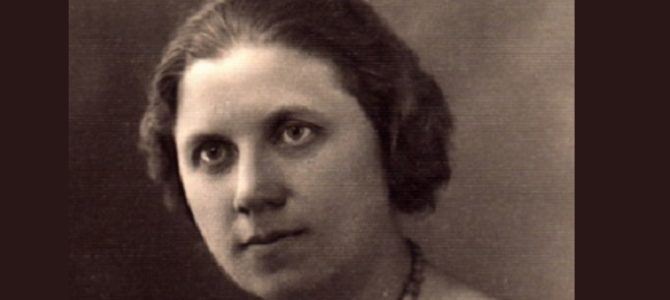Excerpts from Ona Šimaitė’s memoirs and Rimantas Stankevičius’s book “Gyvenusi tautos himno dvasia” [She Lived the Spirit of the National Anthem].
The Name Which Became Legend
Ona Šimaitė:
“I was too close to Jews during their time of great misfortune not to express my wonder at their unbreakable heroism and moral fortitude in the face of the death of their people on the other side of the barb-wire fence of the ghetto. You could say any people would have been broke physically and morally if they had to experience what every single Jew experienced. The Jews in the ghetto were heroes who never called themselves that.
“During that horrific time for Jews (and for all people of conscience) I often used to think that after it was all over, what the Jewish people had experienced would open the eyes of many people, and that we would only know about the hatred of Jews in archives and museums.
“But I was very wrong.
“Only a small portion of non-Jews remember the horrible means the Nazis used to exterminate thousands of Jews, and how Jewish children, women and the elderly were murdered.
“And shame to those who forget by whose hands this was accomplished, and who saved Jewish lives.”
Rimantas Stankevičius in his book about Šimaitė writes Šimaitė is the only Lithuanian woman who is so well known in so many countries around the world because of the abundance of books, encyclopediae and textbooks published in different languages, known for her good works rescuing Vilnius Jews during the Nazi occupation.
Šimaitė was born January 6, 1894, in Akmenė, Lithuania. On December 2, 1940, when she was a librarian at Vilnius University, she wrote she had attended primary school in Riga, Latvia, later attending high school and teachers’ training courses. She was fluent in Lithuanian, Russian and Polish and also knew German, Latvian and French. She wrote she didn’t own any real estate or businesses.
In the free world after the war, Lithuanians began early on writing about Šimaitė. She was a sort of flag they waved in the face of numerous accusations against Lithuanians for the mass murder of Jews in Lithuania.
Full text in Lithuanian here.


